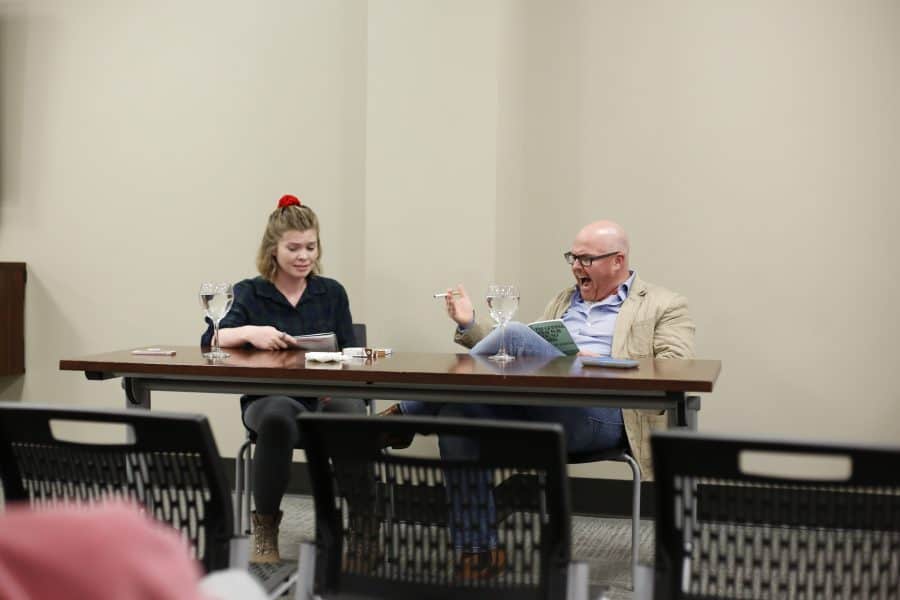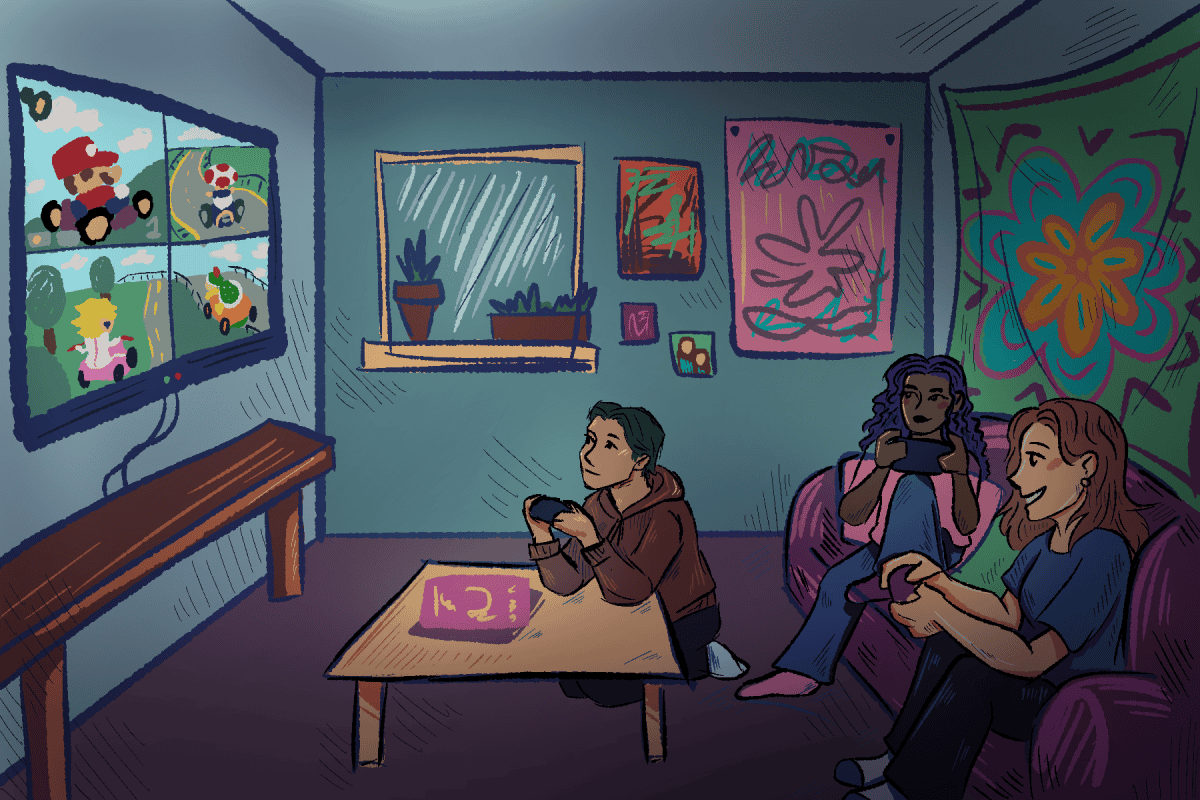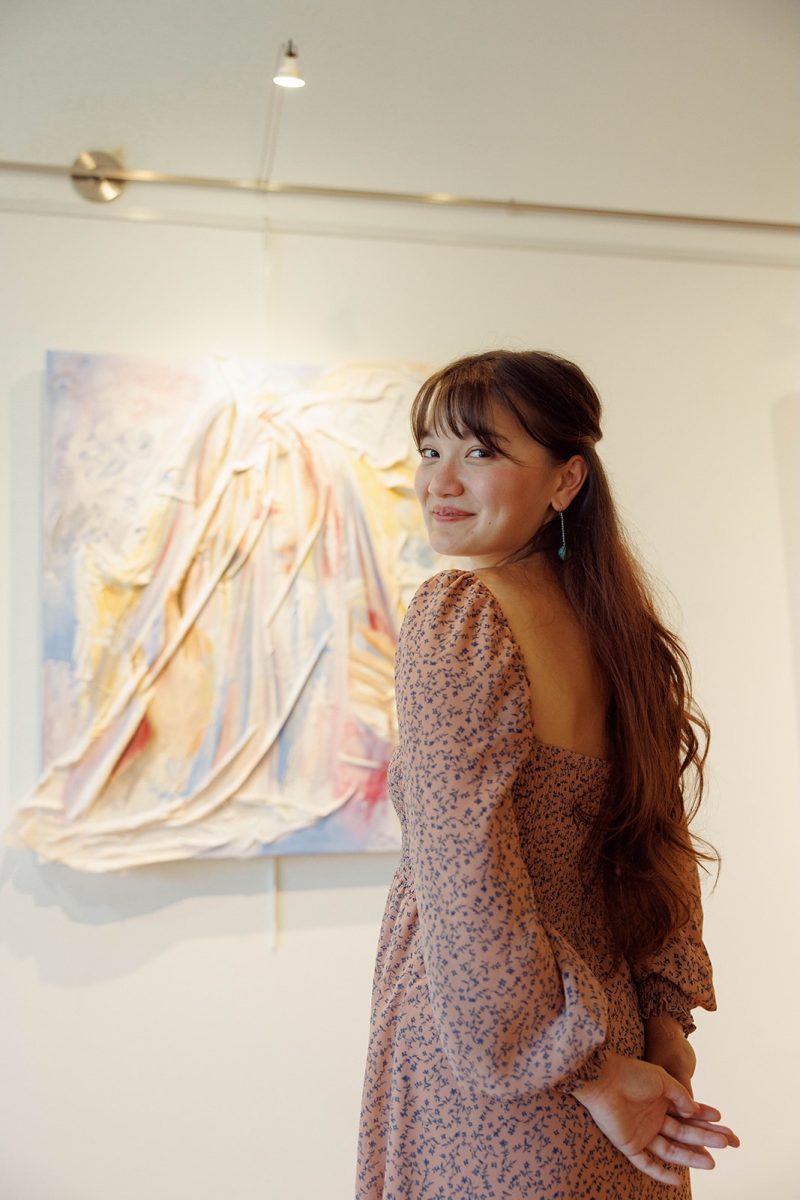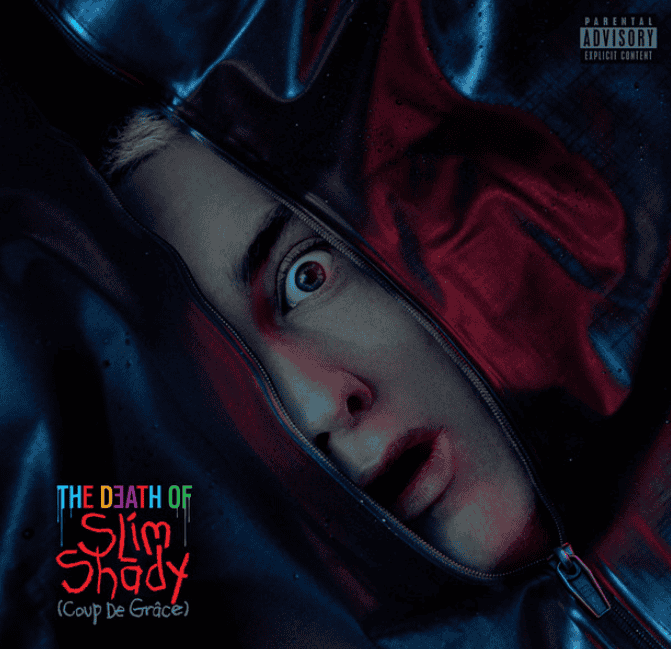Though the average UA theatre production boasts extravagant costumes, sets and lighting design, “I’m Gonna Pray for You So Hard” strips the stage down to its barest bones and seeks to tell a compelling story with only two actors.
Tonight, Monday, April 15, the Crimson Stage production of “I’m Gonna Pray for You So Hard” will run at 7:30 p.m. in Ferguson Center room 3104. Admission is $5 at the door. The cast also presented a show last night.
“[The show] feels like those nights when you’re back home from college, and it’s like 11 p.m., and it’s just you and one of your parents sitting in your kitchen, and you’re just talking,” said Libby Williams, a junior double major in theatre and studio art who plays the role of Ella in the show. “The subject matter of this show may not be easy to watch, but it’s such a comfortable show. It makes sense. It’s presented in such a familiar, comfortable way that it makes dealing with harder issues easy and accessible.”
“I’m Gonna Pray for You So Hard” focuses on the relationship between an estranged father and daughter. The father, played by third-year acting graduate student Ian Andersen, is a famous playwright whose approval his daughter, Ella, is trying desperately to win.
“Her entire story through this is hinged on getting approval from her father,” Williams said. “And it’s something that I think she’s been fighting her entire life to have, but she knows how it’s going to end — she knows it’s going to be a rejection. But, she keeps fighting. She keeps trying to get it. That’s really what guides her throughout the entire show I think.”
Though the play focuses on a specific relationship, the theme attempts to reach everyone in the audience.
“I think everybody, even if you have a wonderful relationship with your parents, you’re always seeking parental approval,” Andersen said. “So, it’s a ubiquitous theme, but the way she addresses it I think is very special, and I think’s it’s kind of raw.”
The show will be a staged reading instead of an ordinary play. Thus, the actors will read from music stands and other surfaces in the room but still deliver the piece in a dramatic fashion. There will be no set and the props will be minimalistic.
“A play like this, something so contemporary, just a two-person show, isn’t really something that you’re going to see a lot on a university campus,” said Molly Penny, a senior double majoring in musical theatre and French who directs the reading. “So, I wanted to take this opportunity to present something very different that would be an exciting experience for the actors as well as the audience.”
The play, written by Halley Feiffer, was originally published in 2015. It is set in the modern day and addresses familial tensions as well as some critiques of the theatre industry.
“[I’m Gonna Pray for You So Hard] is such a striking piece of theater,” Penny said. “With all of [Feiffer’s] work, I’m just so excited about it. She really, as a playwright, does a great job of not only bringing you into the story and making it interesting, but also everything is so high energy even in some of her more dramatic work.”
Cast members emphasized the story’s aim to keep the audience on the edge of their seats while exploring an emotional landscape.
“I think it’s a journey of self-discovery and discovering what truly matters versus what we think matters and how perspective changes over time,” Andersen said.
“I’m Gonna Pray for You So Hard” is not recommended for children due to foul language and the depiction of drug abuse. However, the show is not just for viewing by the theatre department — it is open to every mature audience member who is interested in attending.
“Come and see it because it is something that is unique on a college campus,” Andersen said. “The majority of our programming in the department has to involve as many students as possible and satisfy a very specific kind of patron, whereas this I think is a little more gritty and indicative of what contemporary theatre is in bigger cities right now.”







